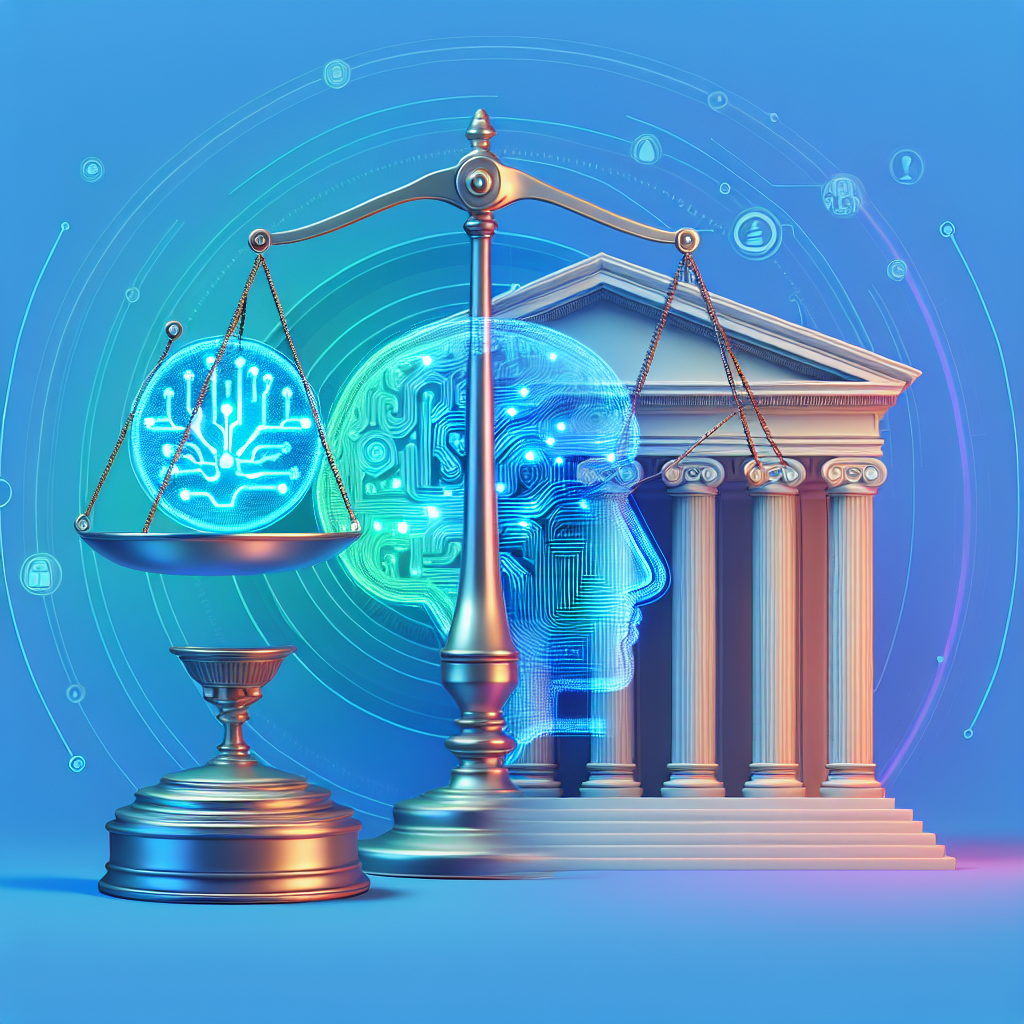Artificial Intelligence (AI) is rapidly transforming various industries, including government services. From predictive analytics to virtual assistants, AI technologies are being used to improve efficiency, accuracy, and decision-making in the public sector. However, as AI becomes more prevalent in government operations, concerns about ethics and accountability have become increasingly important.
AI Ethics in Government:
AI ethics in government refers to the moral principles and guidelines that govern the development, deployment, and use of AI technologies in the public sector. This is essential to ensure that AI systems are fair, transparent, and accountable. Some of the key principles of AI ethics in government include:
1. Accountability: Government agencies must be accountable for the decisions made by AI systems. This includes ensuring that there is transparency in how AI systems are being used and that there are mechanisms in place to address any biases or errors that may arise.
2. Fairness: AI systems must be designed and implemented in a way that is fair and unbiased. This includes ensuring that the data used to train AI models is representative of the population it serves and that there are safeguards in place to prevent discrimination.
3. Transparency: Government agencies must be transparent about how AI systems are being used and the decisions they make. This includes providing explanations for AI-driven decisions and allowing for external audits of AI systems.
4. Privacy: Government agencies must ensure that AI systems are designed to protect the privacy and security of individuals’ data. This includes implementing strong data protection measures and obtaining consent from individuals before using their data in AI systems.
5. Human oversight: While AI systems can automate many tasks, there must be human oversight to ensure that AI-driven decisions are ethical and aligned with government policies and regulations.
AI Accountability in Government:
AI accountability in government refers to the responsibility of government agencies to ensure that AI systems are used in a responsible and ethical manner. This includes holding government officials and AI developers accountable for the decisions made by AI systems. Some key aspects of AI accountability in government include:
1. Legal framework: Governments must establish clear legal frameworks that govern the use of AI in the public sector. This includes regulations that address issues such as data privacy, transparency, and accountability.
2. Oversight mechanisms: Government agencies must implement oversight mechanisms to monitor the use of AI systems and ensure that they are being used responsibly. This can include creating AI ethics committees or appointing AI ethics officers within government agencies.
3. Auditing and evaluation: Government agencies should conduct regular audits and evaluations of AI systems to ensure that they are operating as intended and are not causing harm. This can help identify any biases or errors in AI systems and take corrective actions.
4. Redress mechanisms: Governments must establish redress mechanisms for individuals who have been adversely affected by AI-driven decisions. This can include setting up avenues for appeals or complaints related to AI systems.
5. Training and education: Government officials and AI developers must receive training on AI ethics and accountability to ensure that they understand the implications of using AI technologies in government operations.
FAQs:
Q: What are some examples of AI technologies being used in government?
A: Some examples of AI technologies being used in government include predictive analytics for crime prevention, virtual assistants for citizen services, and chatbots for answering queries from the public.
Q: How can government agencies ensure that AI systems are ethical and accountable?
A: Government agencies can ensure that AI systems are ethical and accountable by following principles of AI ethics, implementing oversight mechanisms, conducting regular audits, and establishing redress mechanisms for individuals affected by AI-driven decisions.
Q: What are some potential risks of using AI in government?
A: Some potential risks of using AI in government include biases in AI systems, lack of transparency in decision-making, data privacy concerns, and the potential for job displacement due to automation.
Q: How can citizens hold government agencies accountable for the use of AI technologies?
A: Citizens can hold government agencies accountable for the use of AI technologies by demanding transparency, asking for explanations of AI-driven decisions, and advocating for strong data privacy protections.
In conclusion, AI ethics and accountability are crucial considerations for government agencies as they adopt AI technologies to improve public services. By following principles of AI ethics, implementing oversight mechanisms, and ensuring transparency and accountability, government agencies can ensure that AI systems are used in a responsible and ethical manner. It is essential for governments to prioritize AI ethics and accountability to build trust with citizens and ensure that AI technologies are used to benefit society as a whole.

